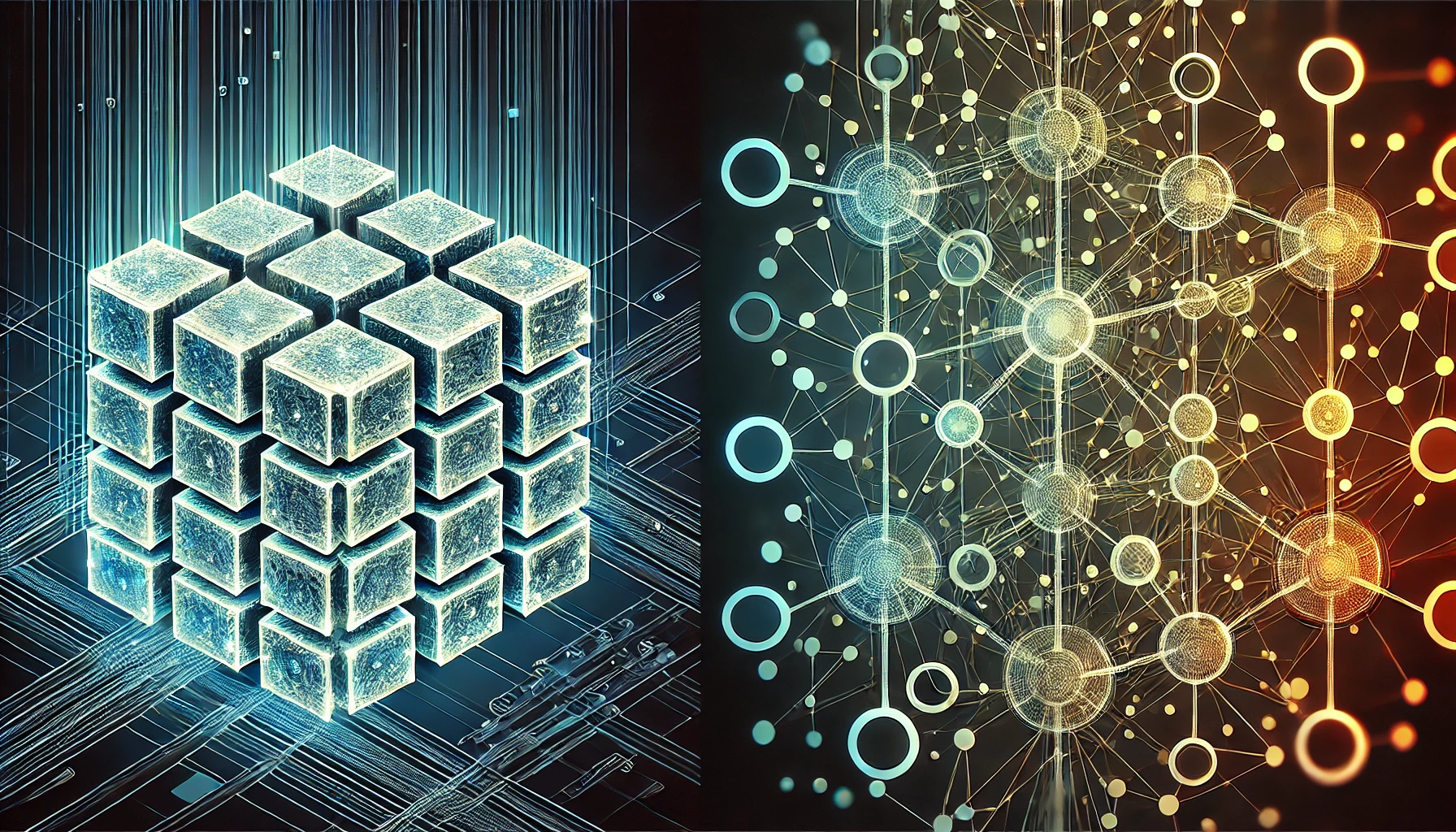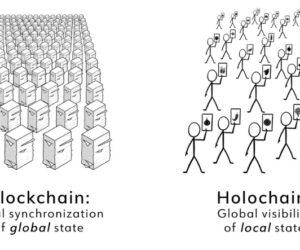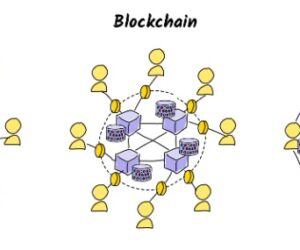
Holochain vs Blockchain
The current money system for most of the world is operated by their government through the use of banks. Originally, in the earlier modern civilizations, precious metals, often shaped and stamped as coins, were used as currency. Then later that changed to paper.. And when the first paper fiat dollars were issued, each one that was printed, had to be backed by an equivalent value of some physical asset – usually gold or silver. That has not been the situation for about the past 100 years. Centralized institutions, in collaboration with bankers, decide how much money to create and where those funds are distributed. This is one of the major root causes of financial inequality across the world. As this fact became widely recognized and understood, it led to a Decentralized Finance (DeFi) movement.
Banks offer a service of keeping our money safe and doing all the accounting. The entire process is digital, but if we want physical paper money, we simply have to click a few buttons. What happens if every single person wants to withdraw their funds at the same time? This would cause a panic since the banks keep less reserves than the total amount of balances, just like what happened in the massive ‘bank run’ in the US during the Great Depression. Ultimately this period in history led to the removal of gold backed currency reserves by governments.
In recent years, there has been an increased interest in alternative forms of digital currency, where there is no central authority. Blockchain technology is the first and most predominant attempt at delivering on that idea. However, it is not the only thing available for accomplishing such a challenging yet very important goal. This article will discuss the Holochain and Holo projects, and how they are different from blockchain, and each other.

Blockchains operate a decentralized ledger by achieving global consensus. This means that for transactions to be approved, each validator in the network must agree upon a single version of the truth about the accuracy of the ledger. Holochain on the contrary, does not require any consensus mechanism. It is not a blockchain. It is an open source framework for building peer-to-peer applications. The word ‘chain’ in the name refers to the fact that it maintains data integrity by leveraging the same cryptographic principle of a hash-chain – which is a linked list of encrypted data, where each entry is ordered by the time of its creation and cannot be forged or edited. Just like blockchain, peers in a network agree to use the same rules for verifying data, however they can choose to participate in different networks with different rules.
Source: https://blog.holochain.org/blockchain-a-holochain-perspective/
Here’s a summary of the key differences between Holochain and Blockchain:
- No consensus mechanism.
- Not a ledger, can build many types of P2P apps (including a ledger).
- There is no native currency, nor is one required to operate it.
- Allows for custom validation rules unique to each app.
- Each “app” (called Happ) is more than a traditional decentralized app, because it functions like an entire P2P network.

In addition to the DeFI movement, there is a quieter less known movement happening.. for an idea called local-first software. Since information is power, majorcorporations have a lot of it (and money) since they own our data. They do this by controlling the devices/computers which store your data (called servers, ie ‘cloud’). Holochain flips this infrastructure upside down, allowing the users to either store their own data, or delegate to trusted parties.
Most people don’t read the fine print of privacy agreements when they use “free” applications and online services provided. Nothing under this system is truly free. These major corporations legally sell your data (and sometimes without permission). What if you, as the end user, got to be in complete control over who can access your identity, information, online activity, etc and you were the one who got paid if it was sold? This is the premise behind the many value propositions that P2P applications built using Holochain could offer… data sovereignty with the same benefits of the cryptographic security of blockchain; with more efficient scalability and less consumption of resources.
Holo
Something important to understand about Holochain is that it is not a cryptocurrency. This is confusing because an ERC-20 (Ethereum) token called HOT was issued as a fundraiser for the building of Holochain. The company Holo Ltd is a for profit business that sold HoloPorts which are specialized devices that can earn HoloFuel by hosting various Happs. Anyone who wants to use the Holo network for hosting, must purchase the services using HoloFuel. Holofuel is also not a cryptocurrency, it is a mutual credit system built using Holochain (which is backed by the underlying value of Holo’s cloud hosting infrastructure). The HOT token will be exchangeable 1:1 for HoloFuel during the first 6 months of its launch.
Here are the differences between Holo and Holochain:
- Holochain is an open source technology that anyone can use according to its license. Holo is a business that sells HoloFuel and provides cloud hosting services for Holochain apps (Happs).
- Holochain does not have a currency associated with it. Holo is a market for Holoport owners and uses the mutual credit currency HoloFuel to operate these.
- Anyone can host Happs with or without a HoloPort, independently of Holo Ltd. Someone who wants to sell their hosting capacity on the Holo market, must register with the company and agree to follow their policies.
Conclusion
Holochain is an alternative approach to Blockchain that is better for the environment since it uses a tiny fraction of the amount of electricity. Unlike Bitcoin, it is more than a digital ledger. Similar to Ethereum, it offers the ability to create Dapp ecosystems, but without requiring a Blockchain or native cryptocurrency. Holochain can be used to create a new style of internet that is owned and operated by the people, for the people.
For a more technical exploration, check out the following links:
Holo’s explanation of Holochain in 3 levels of technicality:
Holo Hosting website:
For devs or the tech savvy:
Technical papers:
Cryptographic Autonomy License:
Holochain Dev portal:
Docs, core concepts:
Dev Pulse:
rrDHT tech deep dive:



